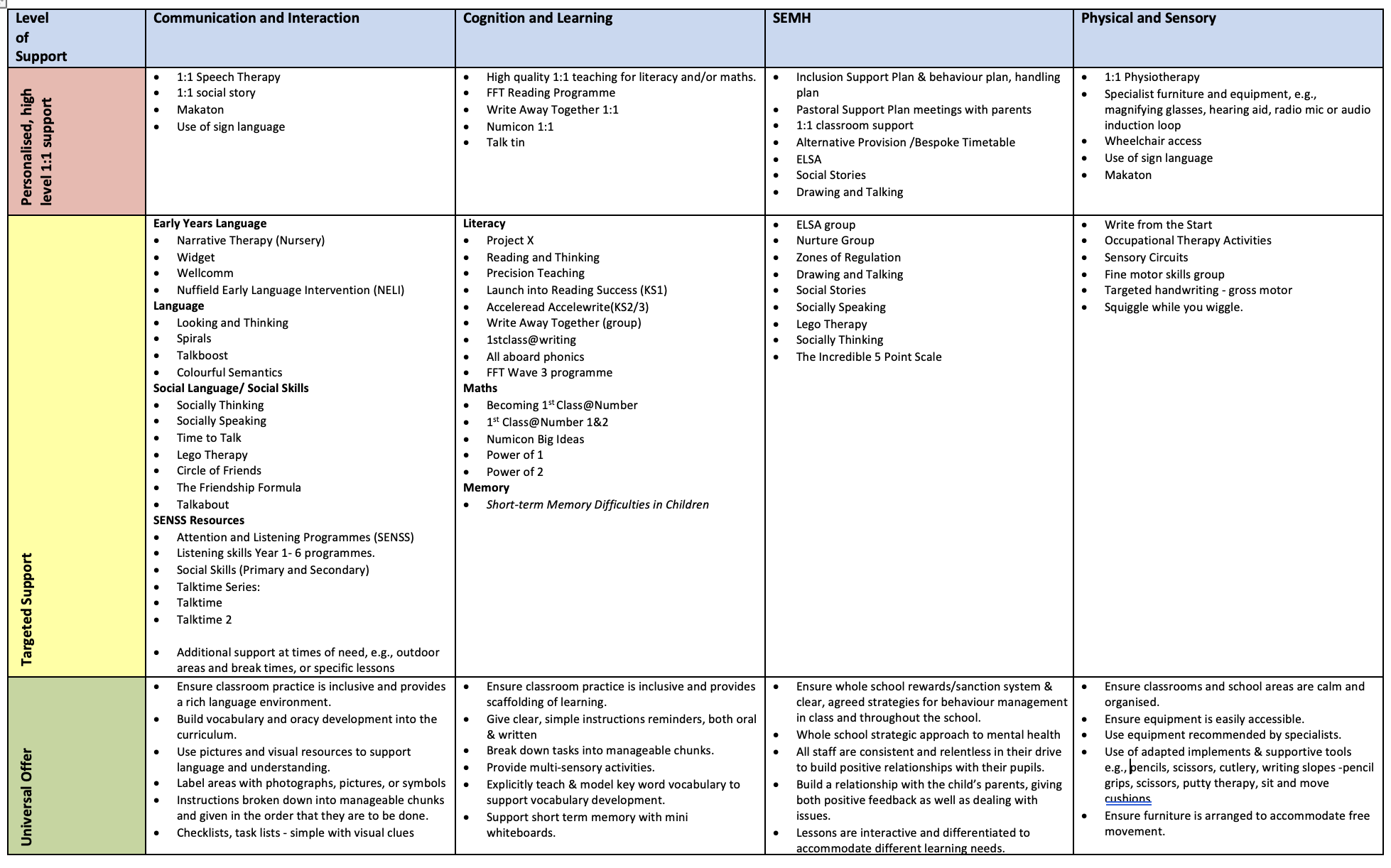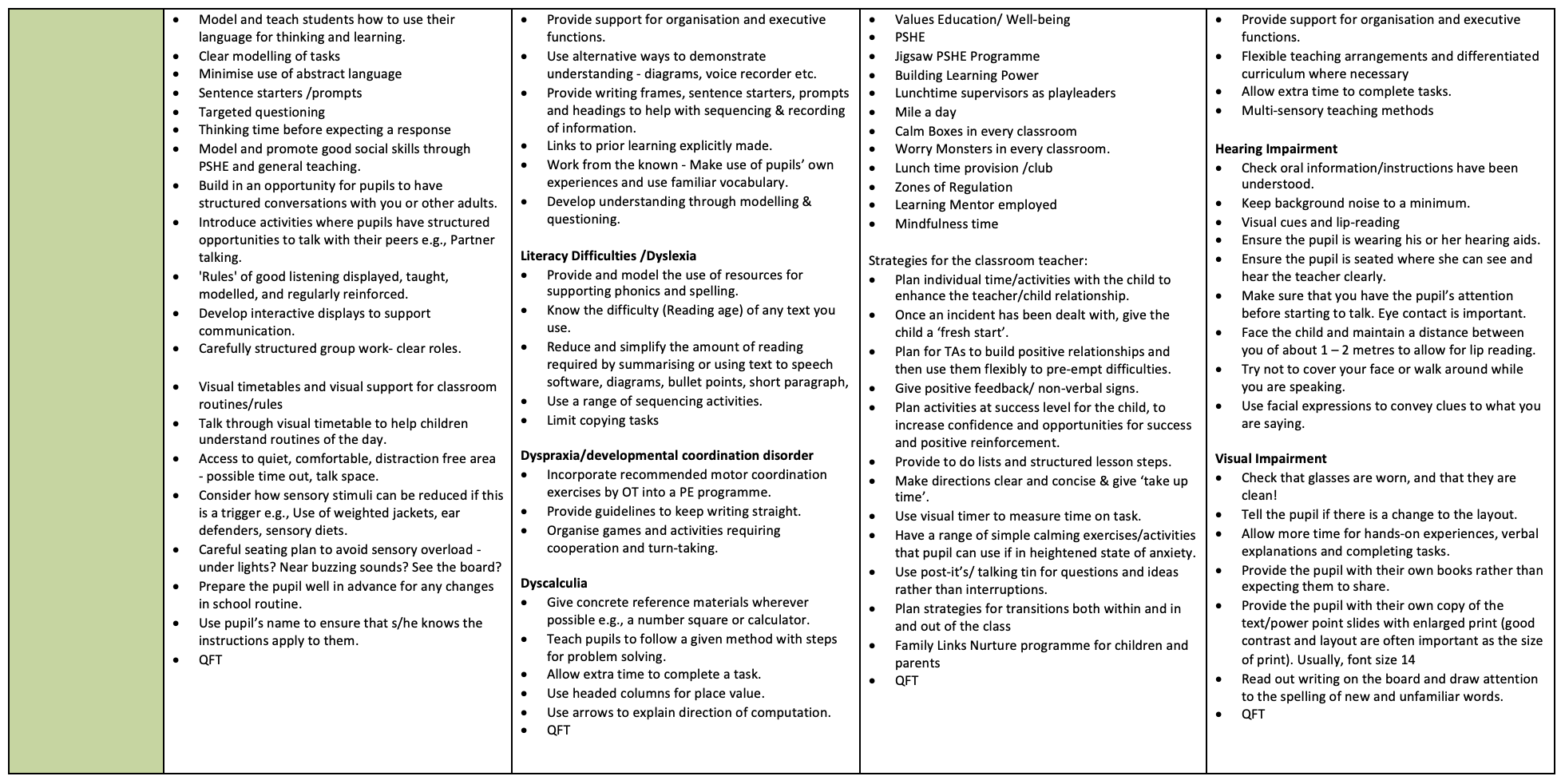SEN information
SEN Provision at St Michael’s Primary School
SENCO: Mrs Lina Sheehan
Contact Info: (01235) 831298
Email: lsheehan@st-michaels-pri.oxon.sch.uk
At St Michael’s school we recognise that all children have a right to a broad, balanced, relevant and differentiated curriculum. We aim to create a happy, educationally exciting and positive environment in which all pupils can develop to their full potential. We recognise that children are individuals, that each one has needs special to him or her.
We aim to:
- ensure that our curriculum is responsive to all children whatever their individual need
- promote positive attitudes and individual confidence, ensuring all children experience success identify, assess, record and regularly review pupils’ special educational needs.
- encourage parents/guardians to be involved in planning and supporting at all stages of their child’s development.
- make effective use of support services.
Paper copies of the St Michael's Special Educational Needs Policy or the Special Educational Needs Information Report can be obtained from the school office.
More information about the Oxfordshire County Council Local Offer for Children with SEN and disabilities can be found at: https://www.oxfordshire.gov.uk/cms/taxonomy/term/278
Provision Planning using 3 waves for inclusive practice
and Quality First Inclusive Teaching
The three-tier provision planning below is underpinned by the principles of Quality first teaching (QFT), as outlined in the SEND Code of Practice (2015), and primarily focusses on the inclusion of all pupils in high quality, everyday teaching. It is an approach which ensures every pupil can access every lesson in a way they are able to achieve and progress.
Generic Principles of Quality First Teaching
- Lessons are highly focused with clear learning outcomes
- High expectations of learner engagement and learners taking responsibility for their own learning
- Opportunities are in place for learners to succeed, develop independence as well as being challenged
- Opportunities for interactions for all learners and an emphasis on learning through dialogue
- Knowledge and understanding are not assumed
- Regular use of praise to engage and motivate learners
- Keywords visible and referred to within lessons
- Examples and models support learners accessing tasks
- A range of resources and strategies are evident in planning and delivery - visual aids, concrete and visual resources, hands-on and experiential opportunities, Literacy Mats, Dictionaries and Thesauri, use of symbols, pictures and colour, use of memory aids, visual stimuli, songs and rhymes, etc.
- Links to prior learning: revisiting & revision, refer to previous work, use of mind maps etc. to show links
- Regular revision and repetition: Think of it as a spiral of learning where you keep returning to a topic, with increasingly long periods in between each return; this is sometimes called spaced practice
- Clear, structured lessons enable classwork to be varied including independent, pair and group work to support with developing independence as well as group work skills
- Break up learning tasks: build in movement from one task to another where possible, change pace, change activity, use breaks; new learning needs time to ‘bed in’ and breaks can help that process



